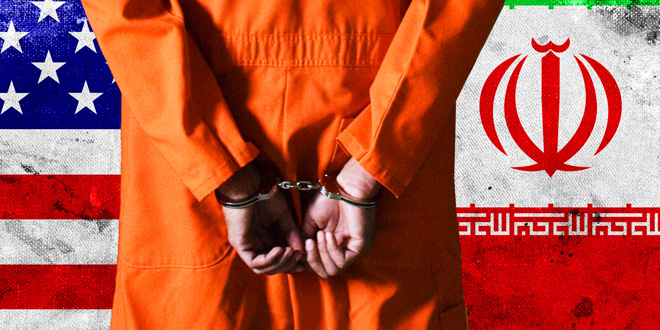
We begin tonight’s edition of A Window to the Fatherland with Dr. Alireza Nourizadeh reading one of his poems from the book of his collected works.
Read More »
We begin tonight’s edition of A Window to the Fatherland with Dr. Alireza Nourizadeh reading one of his poems from the book of his collected works.
Read More »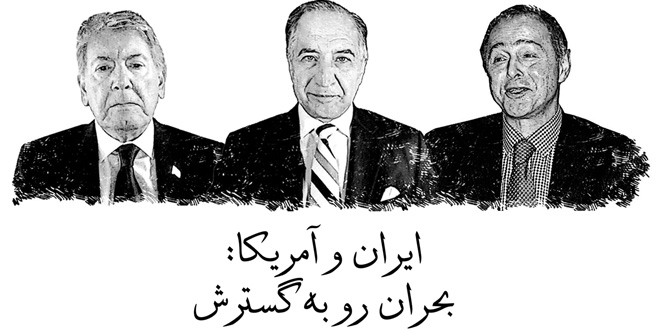
Jamshid Chalangi:
In tonight’s program we will look at the escalating tension between Tehran and Washington, which started forty years ago after the seizure of the US embassy in Tehran and followed by terrorist attacks on American troops in Beirut and Iraq.
As the US economic pressure on Iran grows, some analysts do not rule out the possibility of a war between the two countries, despite President Trump’s statement that he does want a war with Iran.
Our guests to discuss these issues tonight are commentators Koroush Kalhor and Reza Taghizadeh.
Read More »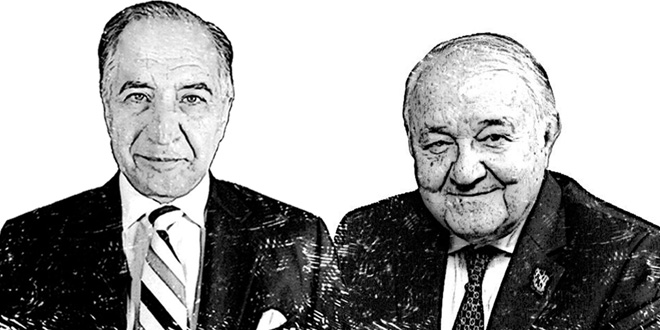
Jamshid Chalangi:
In tonight’s program we will once again look at the escalating tension between Tehran and Washington, as President Donald Trump has set a red line for Iran by tweeting “If Iran wants to fight, that will be the official end of Iran”.
We need to find out why the Iranian side refuses to enter any negotiations and if there are parties on both sides who do want to enter a war.
Our guest to discuss these issues tonight is former Iranian diplomat and political commentator Dr. Mehrdad Khonsari.
Read More »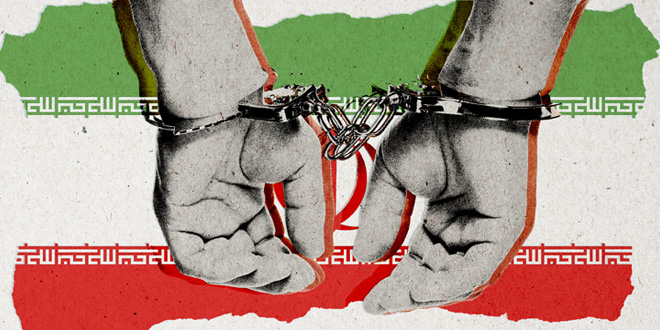
We begin tonight’s edition of A Window to the Fatherland with Dr. Alireza Nourizadeh reading one of his poems from the book of his collected works.
Dr. Alireza Nourizadeh:
I wrote this poem for the late mother or my close and dear friend and colleague Massoud Behnood who passed today without being able to see her son to say goodbye to him.
These deaths are even more saddening when parents are away from their loved ones because of the calamitous rule of the present regime in Iran, which has divided our nation and forced millions to flee our motherland. And yet the regime unashamedly calls itself “Islamic” and follower of the prophet!
Hadi Razavi, the son-in-law of the regime’s minister of industry Shariatmadari has been sentenced to 17 years in jail for a major corruption case and we will report on his court hearing today.
People like Razavi are the cronies of Khamenei and his court case is the tip of the iceberg.
The Omani Foreign Minister Mr Ben Alawi has traveled to Tehran, carrying a message from the US government.
The regime’s ambassador in Oman Mr Nouri Shahroudi, who incidentally happens to be a sensible man, has conveyed a message to Tehran that the US is very serious about its threats and a war can completely destroy Iran and it is in the interest of the regime to enter negotiations with Trump.
A look at the military armada that the US has sent to the region clearly shows that it is prepared to respond in full force against the regime’s provocations and the Omanis surely do not wish to see this happening.
We only wished that the leaders of the regime had the slightest feeling of the Omani Sultan and realized the serious danger that threatens the existence of our country and backed off from their nefarious acts.
As we reported yesterday, the regime has now brought thousands of Iraqi and Yemeni militias into Iran who are undergoingmilitary training for operations in the waters of the Persian Gulf.
Iran has a 6000 years old written history and many invading armies have tried to destroy our country in the past but have failed and surely the current children of our nation, the likes of worker Eslmail Bakhshi and women’s rights fighter Narges Mohammadi will not allow this regime to lay the ground for the destruction of our ancient motherland.
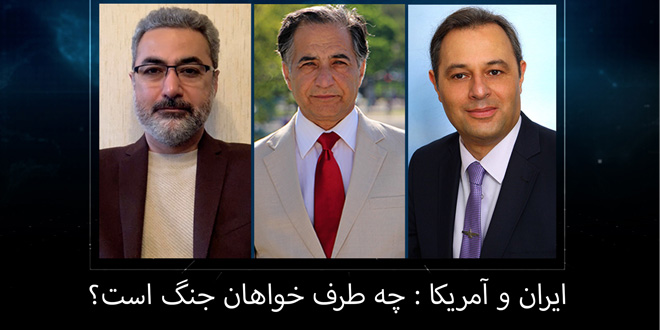
Jamshid Chalangi:
In tonight’s program we will once again look at the ongoing violation of human rights in Iran and report on the escalation of the tension between Tehran and Washington, as President Donald Trump has set a red line for Iran by tweeting “Don’t try to get nuclear weapons or threaten America again or else”.
He has also said “If Iran wants to fight, that will be the official end of Iran”.
As some Arab countries of the region begin their naval manoeuvres in the Persian Gulf, the Iraqi Prime Minister Adel Al Mahdi has said he is doing his best to mediate between Iran and US to end the current standoff.
Our guests to discuss these issues tonight are political commentators Dr. Alan Toufighi and Khosrow Forouhar.
Read More »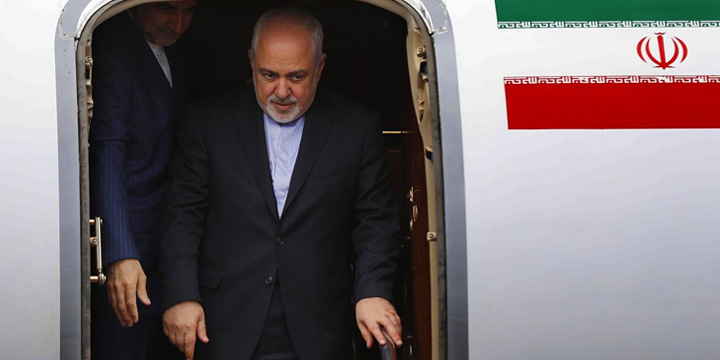
We begin tonight’s edition of A Window to the Fatherland with Dr. Alireza Nourizadeh reading one of his poems from the book of his collected works.
Read More »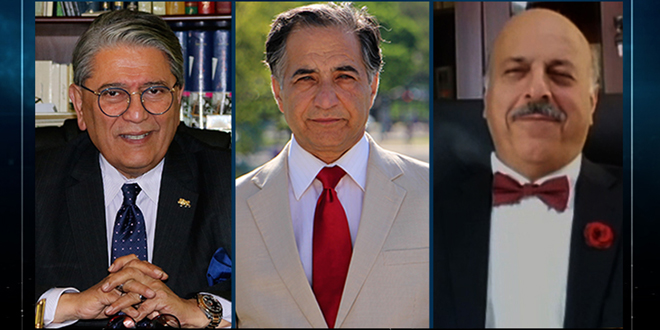
Jamshid Chalangi:
With our warm greetings, tonight we will look at the latest news of the escalating US-Iran tension and find out what each one of them are saying about it and what is the position of the Europeans about this crisis.
In the meantime the leaders of Jordan and Egypt have been visiting European and Middle Eastern capitals respectively with this tension at the top of their talks.
Our guests to discuss these issues tonight are Dr. Alireza Nourizadeh and Mr Ghassem Shole Sadee.
Dr. Alireza Nourizadeh:
The regime has put draconian restrictions on our people during the holy month of Ramadan and claims that these will help people to become more faithful and religious!
This is a big lie, as the leaders of this regime do not have any faith themselves otherwise they would not have committed so many crimes against our people. In fact this regime is uprooting our people’s religious beliefs and moral values.
I do not know how our people still tolerate this regime which has a mission to destroy our country and with it the labour of five generations that have built it.
I am sure the faithful and religious Iranians suffer even more when they see how their religion has become hostage of a gang of hypocrites who want to enter Iran into a war with the US that will take ourcountry back into the middle ages.
The regime thinks that with a drone attack by its operators on the Saudi pipelines it will win a war with the US and its allies in the region.
Jamshid Chalangi:
President Trump has clearly said that he does not want a war with Iran and prefers tohold negotiations with the regime.
Dr. Alireza Nourizadeh:
That is right. The problem is that the regime in Iran wants a war because it has failed in every aspect and the only “victory” it has had is its presence in Iraq and Syria and Yemen.
Do you think Ali Khamenei is going to leave these countries for the sake of saving our own country from destruction? He will not.
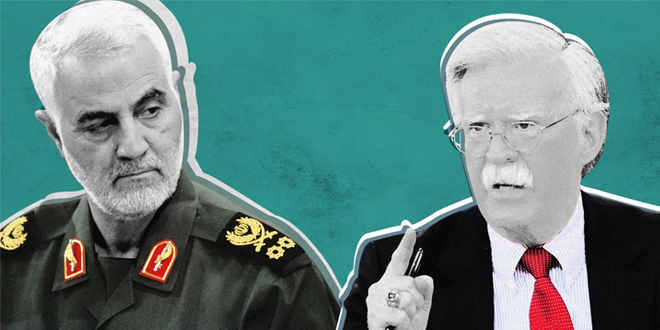
We begin tonight’s edition of A Window to the Fatherland with Dr. Alireza Nourizadeh reading one of his poems from the book of his collected works.
Read More »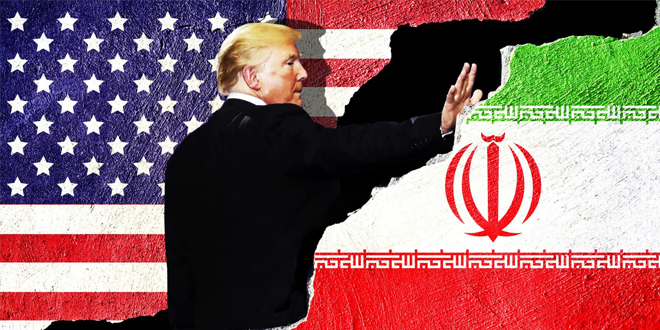
We begin tonight’s edition of A Window to the Fatherland with Dr. Alireza Nourizadeh reading one of his poems from the book of his collected works.
Read More »
Instability and conflict are spreading in the Middle East. Three interconnected developments, feeding on and exacerbating one another, could now plunge the region into further turmoil, heating up its cold wars, deepening its sectarian fissures and opening new wounds that could fester for generations.
First is Iran’s growing regional role and the heightened convergence between its Arab and Israeli adversaries, backed by the U.S., over the critical need to block it from further gains and start to roll back its influence. This regional standoff has become more acute in the wake of the Trump administration’s withdrawal from the Iran nuclear deal and “maximum pressure” policy against Tehran and its regional allies.
Israel has been sounding alarm bells about Iranian and Hizbollah forces massing close to the Golan Heights and Iran’s apparent plan to transfer an indigenous precision-guided missiles production capability to the movement. Israel has conducted numerous airstrikes in Syria since 2012, purportedly in an attempt to thwart Iran’s transfer of sophisticated weapons to Hizbollah or establishment of new military infrastructure there. So far, Iran, focussed on protecting its beleaguered Syrian ally and helping it to regain lost ground, has largely demonstrated restraint; this could change once the situation on the ground stabilises and/or if Israeli strikes cause significant additional Iranian casualties. Cross-border tit-for-tat attacks between Israel and Iran/Iran-backed forces in Syria have been increasing, making an open confrontation more likely.
This is occurring against the backdrop of Saudi Arabia’s new, more assertive – at times reckless – approach toward the region. Its crown prince and de-facto ruler, Mohammed Bin Salman, appears to have concluded that the kingdom has been too passive in the face of Iranian expansion and increasing clout in Iraq, Syria, Lebanon and Yemen. He describes Iran’s supreme leader, Ayatollah Ali Khamenei, as “the new Hitler”, vowing to counter him forcefully in all these countries. Yet Saudi Arabia’s responses have either failed or even backfired, generating new crises that Iran has been able to exploit: from the misadventure in Yemen that marked fitful military progress while causing a humanitarian catastrophe, to the self-inflicted wound of embargoing its fellow Gulf Cooperation Council (GCC) member Qatar and thereby damaging the Gulf alliance, to the clumsy attempt to isolate and expose Hizbollah in Lebanon by forcing the prime minister, Saad al-Hariri, to resign during a 2017 visit to Riyadh, a decision the latter reversed the moment he had been able to return home.
In Washington, unquestioned support of Israel and outspoken animosity toward Iran appear to be the Trump administration’s organising principle in its Middle East policy. It apparently is also its chosen course for restoring U.S. credibility and deterrence in the Middle East that it says President Barack Obama allowed to erode. The White House is thus keen on pushing back against Iran in several theatres, from the Gulf to Yemen to Syria to Iraq, rejecting the notion of diplomatic engagement in favour of economic coercion, and in the process seeking to establish a new power balance in the region.
For its part, Iran believes that it has succeeded in defending its strategic interests in the region against efforts by its foes to roll back its clout and encircle it. Its spear tip, the Iranian Revolutionary Guard Corps (IRGC), has effectively helped – through military aid/advice, and by mobilising fighters for Shiite militia proxies from Lebanon and Iraq to as far afield as Pakistan and Afghanistan – retain Bashar Assad in power in Syria, steady its allies in Iraq, preserve Iraq’s territorial unity by thwarting Kurdish aspirations for independence, and assist Huthis in Yemen to withstand nearly four years of Saudi-led siege and aerial onslaught. However, what Tehran presents as defensive looks like an ever-growing offensive threat to its enemies.
The second development is ISIS’s demise. Its rise in Iraq and Syria created a common foe for Iran, the U.S. and their respective allies. But with the group’s territorial hold virtually over, rival forces compete for the spoils: strategic terrain and resources. Today’s battle lines may harden into lines of attrition, and mutual concerns over the other side’s presence and long-term intentions could trigger clashes between their allied forces, which in turn could draw Tehran and Washington into direct confrontation.
These two developments are set against a third factor: the Trump administration’s hostility toward the 2015 nuclear deal, the Joint Comprehensive Plan of Action (JCPOA). Tehran has complied with the accord; Europe, Russia and China have embraced it; and yet the U.S. repeatedly violated it by depriving Iran of its economic dividends and eventually failed to comply with it when, in May 2018, President Trump withdrew the U.S. from the agreement altogether.
The U.S. exit from the JCPOA and its re-imposition of U.S. sanctions put the deal’s future into serious doubt, even as the other signatories seek to salvage it. While the deal, by design, was tailored to exclusively address concerns over Iran’s nuclear program, the implications of its demise may become manifest not only in an Iranian resumption of uranium enrichment above the agreed threshold but in asymmetric military responses by Tehran in the region, targeting U.S. forces deployed in close proximity to Iranian local partners in Iraq, Syria or Afghanistan. In short, escalation arising from regional competition could contribute to the JCPOA’s demise, just as the JCPOA’s erosion could give rise to more serious clashes in the region.
Economic sanctions against Iran might have effects in Syria’s Deir el-Zour province, where the U.S.-backed Syrian Democratic Forces and Iranian-backed Shiite militias compete for territory that has strategic value and energy resources. A missile strike fired by Huthis in Yemen toward a Saudi or Emirati city or an inadvertent clash in the Strait of Hormuz, a critical artery of the international energy trade clogged with U.S. and Iranian vessels, could provide justification for direct U.S. retaliation on Iranian soil, or for torpedoing European efforts to sustain the JCPOA without the U.S. Risks are high in a region that faces a free-for-all in which the only operative restraint on one’s actions may be reluctance to absorb the other side’s expected reply.
Any hint of dialogue that could alleviate the sense of growing, inescapable crisis is as welcome as it seems unlikely. The Trump administration has closed the brief diplomatic openings crafted with Iran under its predecessor. Ayatollah Khamenei feels vindicated in his long-standing mistrust of the U.S., while Israel, Saudi Arabia and the UAE feel empowered by the Trump administration’s overt hostility toward Iran. That none of the parties seems inclined to make the first move towards rapprochement is at best a recipe for an ongoing dangerous standoff, at worst for direct confrontation.
It may be the case that no one seeks an escalation. But without navigating a way out of the current turmoil through dialogue and diplomacy, the prospect for escalation between the U.S. and Iran or between Iran and Saudi Arabia inevitably will grow, with all its predictable and ominous consequences.